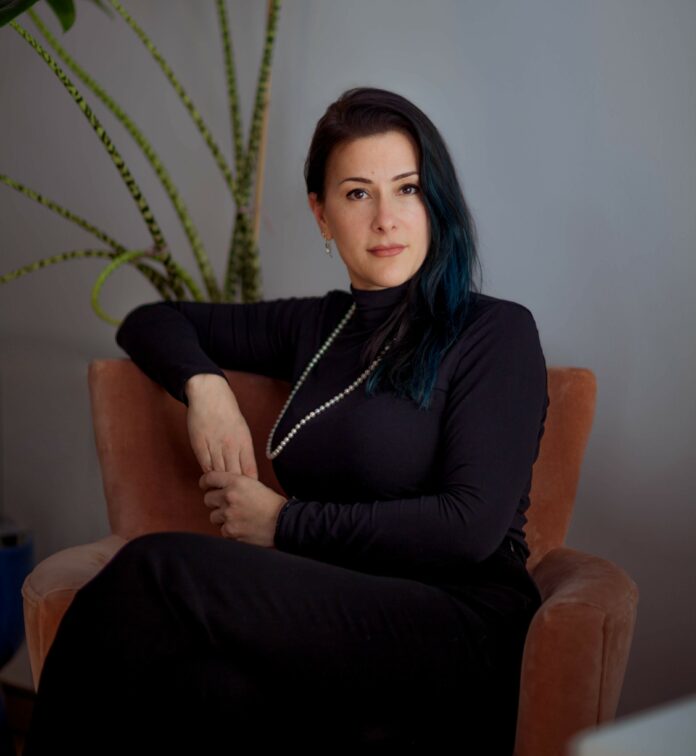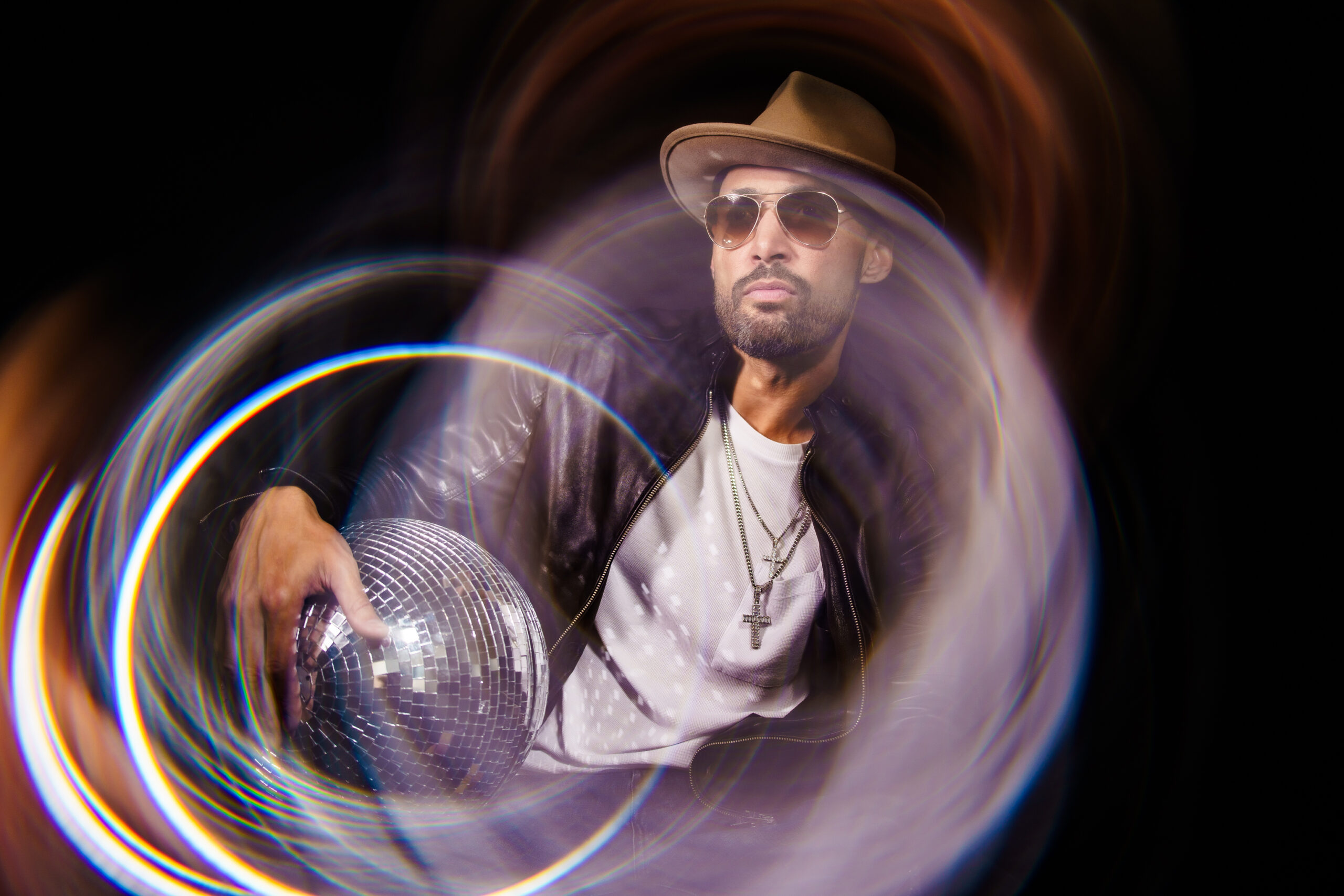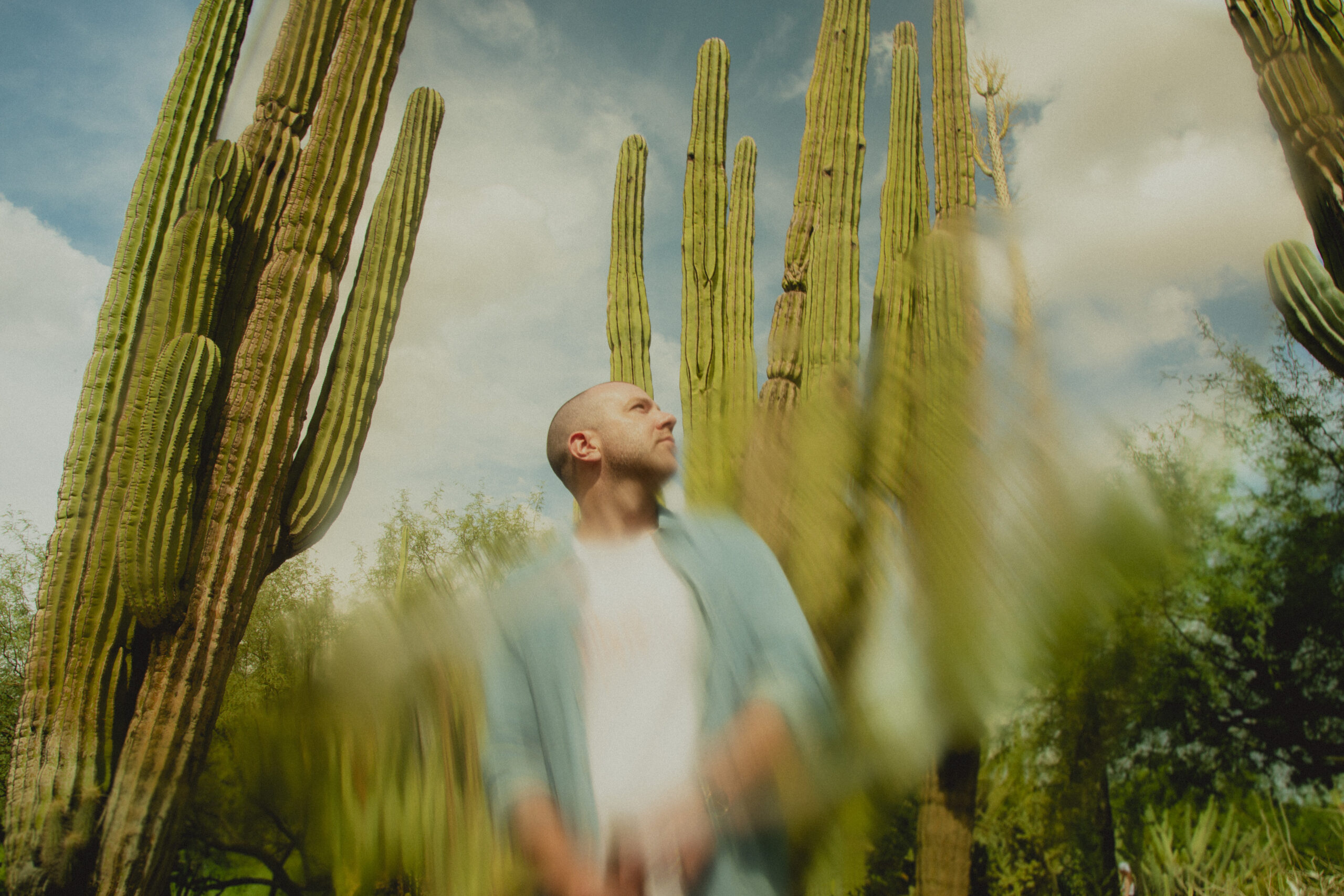
In the colossal arena of pop music, there’s an unsung hero who has been silently orchestrating some of the industry’s biggest triumphs. Rachel Strassberger, part of the management team of the globally-renowned Black Eyed Peas, showcases a resume that many in the industry can only aspire to.
Starting her career in the fierce battleground of the Swiss electronic music scene two decades ago, Rachel’s international footprint was established in 2005. Her masterful signing of Yves Larock’s ‘Zookey’ to eminent labels like Defected, Spinnin’ Music, and Warner France, was just a prelude to what was to come. By 2008, she was dominating the global charts with Larock’s ‘Rise Up’, brokering a staggering 27 separate licensing deals, overseeing promotional campaigns across 45 nations, and ensuring it clinched a Top 10 position in numerous countries. Achieving this feat in an almost entirely male-dominated executive sphere made her success all the more groundbreaking.
Rachel’s prowess didn’t end there. Strassberger Inc, her boutique consultancy, catered to a vast array of industry needs – from brand sponsorships, artist management, PR to stakeholder management, and many more. The consultancy’s clientele read like a who’s who of music, boasting names like NERVO, Universal Music, Spinnin Records, Sam Feldt and many more.
Her crowning achievement? Joining the management team of the Black Eyed Peas. As a linchpin in the band’s setup, Rachel’s touch is evident in every facet of their operations – be it music releases, promotions, or social media. major events like the Biden Campaign and the international roll-out of ‘Where Is The Love 2020’, Rachel’s command over the band’s digital narrative across platforms, from TikTok to Spotify to Apple Music, is unparallelled. Her expertise extends beyond the digital sphere, handling intricate details of tours and music releases, making her invaluable to the entire operation.
Fluency in five languages gives Rachel a unique edge, allowing her to interface directly with label partners, media, and promoters globally, ensuring a seamless release process in an industry known for its intricacies.
Rachel’s extensive industry network, combined with her Swiss precision and passion for statistics, makes her an unmatched force. Yet, it’s her ethical stance, emphasizing a culture of kindness and firm compassion, that truly sets her apart. These traits, coupled with her relentless pursuit of excellence, have secured her seat at the industry’s top echelon. Her story is a beautiful example: Behind every chart-topping band, there’s a Rachel Strassberger ensuring their rise to the top.
Read below as we delve deeper into Rachel’s journey in our exclusive interview.
Rachel, you’ve had an impressive career journey, starting from the competitive Swiss electronic music market to becoming a core member of the Black Eyed Peas’ management team. Can you share some of the key experiences or challenges that shaped your path in the music industry?
I think my love for rolling out in a methodical and strategic manner started when I worked on the single by Yves Larock, “Rise Up,” in 2007. I took care of all the legal negotiations for the 27 worldwide licenses. In those days, it was a CD/physical release, so it was completely different from how easily you can do that these days. I negotiated 27 label deals, which meant that I had to send the master 27 different times, along with the cover, the press release, the artist information—everything each label needed to make the release work in their territory. I linked all the territories as much as I could, sharing positive results from each territory with the other 26 territories, giving the whole project a real sense of momentum and making everyone dig deep to push it as hard as they could. With very limited, almost non-existent social media platforms back then and barely any technology to track results, it wasn’t easy, but the results absolutely spoke for themselves. That was when I realized how effective strong data could be for rolling music out worldwide, and that realization absolutely shaped how I went forward in the industry from that point.

I had a question about the remixes released for the Daddy Yankee x Black Eyed Peas collaboration ‘Bailar Contigo.’ In the vast realm of remixing, how did you and the Peas come to cherry-pick this specific roster—from Gianluca Vacchi to the distinct Afro-house vibes of Boniface Amapiano? Was it a bid to encapsulate multiple global dance themes into one package, or was there a more nuanced narrative you hoped would emerge?
To be completely honest, if we had the freedom to not limit remixes, we probably could have created 20 remixes! Our aim was to encompass various electronic music styles, ensuring a wide appeal to as many DJs as possible. Selecting remixers is always a balancing act involving considerations such as style, target audience, budget constraints, timely delivery of the remix, and the remixer’s own release schedule. For instance, when we approached remixers, it was the start of summer, and most DJs were on tour, affecting their availability to work on remixes within the given timeframe. The only exception might have been Boniface, as he’s based in South Africa, where it was winter at the time, hahahha.
Signing the Yves Larock single ‘Zookey’ to various labels marked a pivotal moment in your international recognition. Could you share how you navigated the negotiation of 27 separate licensing deals for the follow-up single ‘Rise Up’ and effectively coordinated marketing campaigns across 45 different countries?
In actuality, ‘Zookey’ was bound by exclusive contracts with only a few labels: Africanism (Bob Sinclar’s label) for France, and Universal and Defected for other territories. Defected held the rights for most of the territories, and they had an option for the subsequent single, which happened to be “Rise Up.” To ensure transparency and explore our options, I initiated discussions with Defected regarding their intention to exercise the option. I even personally reached out to Simon Dunmore to clarify the situation and establish a clear direction. However, within the stipulated contractual timeframe, Defected chose not to exercise the option, granting us the liberty to proceed independently. I must commend Simon for upholding his commitment; despite the track’s popularity, he honored the arrangement, enabling us to pursue direct licenses for all subsequent actions.
In your role as the lead for the Black Eyed Peas’ social and digital teams, you’ve overseen significant campaigns such as the Biden Campaign and the international roll-out of ‘Where Is The Love 2020.’ Could you elaborate on your approach to devising a unified digital strategy that resonates with diverse fan groups across multiple platforms?
The song and video for “Where Is The Love 2020” were intentionally crafted to lend support to the Biden campaign. The roll-out strategy was tightly focused, targeting both US citizens globally and those within the US who were still undecided about their political stance. The primary objective was to pique the curiosity of the undecided audience, prompting them to consider the potential political trajectory for the next four years. To ensure comprehensive reach, we collaborated with PR specialists in various domains to disseminate the message through radio, TV, print, and online channels. Our social media teams were also integral to the effort, working diligently on the campaign. The entire team was aligned because we collectively understood the campaign’s purpose and the significance of its message. Personally, despite being Swiss and not American, working on this project ignited a deep sense of passion within me. I genuinely believed in reaching out to as many individuals as possible, inspiring them to exercise their voting rights and make informed choices. My commitment to the cause stemmed from the aspiration to spread love and advocate for positive actions across all fronts.
Regarding your involvement in the Black Eyed Peas’ management team for their tours, a role involving intricate logistics and decision-making, could you share insights into how you address on-the-ground challenges, collaborate with booking agents, and ensure a seamless tour experience for both the band and their fans?
It all starts with laying the foundation, often well in advance. To give you an idea, planning for the summer tour begins meticulously right after the conclusion of the previous one. Our agent, CAA, plays a pivotal role by presenting us with opportunities. Considering logistics and locations, we piece together the tour like a carefully constructed card castle. From the very beginning, every detail and layer are assembled to ensure nothing is left to chance.
Our team functions like a finely-tuned orchestra, with each member bringing their unique expertise to the table. We collaborate seamlessly, with each individual handling their specific responsibilities adeptly. One or two of us maintain an overarching view to ensure cohesiveness and alignment. Of course, surprises do crop up along the way. Within our team, we view them not as hindrances but as chances for innovative solutions. Embracing the unexpected adds a touch of creative interest and excitement to the journey. With this mindset, we’re poised to make each tour date an unforgettable experience – for ourselves and, naturally, for the fans we encounter on the tour.
Your role encompasses managing all facets of the band’s music releases, from label negotiations to social media outreach and music video roll-outs. With such a global reach, how do you navigate the intricacies of coordinating international releases, and how does your multilingual communication ability aid you in this process?
Absolutely, that facet of my work is akin to my own cherished endeavor, and it’s what I’ve been most passionate about throughout my career. Rolling out music feels like managing numerous checkmarks, creating a captivating puzzle to solve. Music, being inherently abstract, continuously prompts us to contemplate what will resonate with the audience and what might not. I firmly believe that by addressing as many aspects as possible, we enhance our prospects of success, stacking the odds in our favor.
In our modern, interconnected world, it’s easy to assume that everything is linked, but I think that’s not the case. My approach is to focus on connecting dots and ticking those boxes. It’s about understanding cultures, demographics, and languages on a personal and human level. I’ve divided the world into as many countries as possible, ensuring that each one receives content translated and customized to their specific preferences. This way, every media outlet, radio, and end consumer can resonate with the outreach and message we wish to convey.
I could go on and on, but I’ll try to keep it general for now; otherwise, I might end up writing a whole essay (lol). But hey, that’s the passion that drives me, and it’s what makes this journey so stimulating and fulfilling.
Being part of a male-dominated industry at the executive level, you’ve achieved remarkable success and recognition. Can you share some strategies you employed to overcome gender-related challenges and establish yourself as one of the most prolific operators in the international music territory?
This is indeed a challenging question. When I began my journey, the gender disparity in the label world was even more glaringly evident. During my initial Midem conferences in the early 2000s, I could literally count on one hand the number of females working within A&R positions or label management. Being young at that time, I didn’t dwell on it too much. As a pretty extroverted person, I focused more on forging my path and making my mark. I think ultimately I just made sure that whatever I did, I gave it 110% and made sure I was doing it as well as anyone else in the industry, if not better. Results are the final word in any industry, and I brought the results in; it was as simple as that. The numbers don’t lie – I’m Swiss, so that works great for me haha.
Your work with boutique consultancy Strassberger Inc. has benefited various clients in the music industry. Could you elaborate on how you approach managing many aspects such as artist management, brand sponsorship, and intellectual property rights while maintaining a high standard of service for your clients?
Having had the opportunity to work in label operations, management, legal matters, and bookings, I gained a full 360-degree experience. This experience has allowed me to understand how to interconnect all the important jobs, ensuring everything stays in sync. I make sure to bring a positive development on my side of the business, which has a cascading effect, pushing results on other fronts. It’s the power of cross-promotion and cross-activations that really makes the difference.
Also, being involved in diverse music genres has been creatively positive, enabling me to bring fresh ideas and strategic approaches to my clients. Embracing this multifaceted perspective has been extremely beneficial for navigating the dynamic and evolving landscape of the music industry.
Building a network of industry connections is crucial for success in the music business. How do you go about cultivating and nurturing these relationships across different sectors and borders? Can you share an example of how these connections have proven valuable in bringing the best opportunities for your clients or artists?
I love linking people… probably in the same way I love linking projects and activations. The human connection is something I cherish, and being able to link fantastic individuals makes me so happy. We are living in a theoretically “connected world,” but I firmly believe that bringing people together really gives that feeling of connection.
As I mentioned before, I creatively connect people and activities together. Sometimes it’s a bit unconventional, but thinking out of the box is what changes things. I do make sure to check in with friends regularly, and by offering help and creating connections, I find myself naturally reconnecting with my existing network of friends over time. Conferences and events have always been traditional places for networking, but the Covid period has absolutely taught us that we must continue connecting even when we can’t meet in person.



